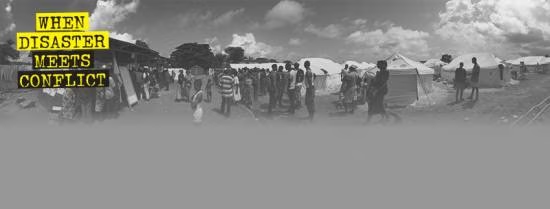Security guidelines manual
Together with Lucy Hodgson and Bram Jansen, Dorothea Hilhorst and Rodrigo Mena have developed a manual to assist researchers in conducting their field-based research or fieldwork in hazardous, remote or complex environments as safely and securely as possible.
The first section of the publication deals with the particular security considerations posed by field-based research and suggests a set of ethical guidelines for field-based research.
Section two is about fieldwork and details how to conduct context analysis and risk assessment as well as how to plan and stay healthy during the course of field research.
The final section is largely comprised of checklists and key considerations to assist researchers in managing their own personal security, both in terms of preventive and reactive measures.
The Manual is available in English, French, and Arabic. A Spanish translation will be available soon.
Training events
In addition to releasing the manual, we have teamed up with ISS and the Erasmus University of Rotterdam to raise awareness of individuals about safety in the field, as well as to develop institutional measures which can and should be taken to increase the safety of researchers during the fieldwork.
Advocacy for safe fieldwork
Universities have long lagged behind in creating a security system for researchers including a policy, training, and insurance.
This blog post by Dorothea Hilhorst looks into the difficulties associated with ensuring the right for researchers to conduct their research safely - 'A Double Message about Safety and Security for Field Research: “Protection Is Crucial” and “Don’t Overdo It”'.
MOOC: Disaster Risk Reduction and humanitarian aid in conflict settings
We also run a Massive Open Online Course (MOOC) on Disaster Risk Reduction and humanitarian aid in conflict settings. The MOOC is meant primarily for practitioners, but also open to students or otherwise interested people.
This MOOC teaches you to develop accountable, high-quality and ethical responses to disaster in conflict-affected areas. It stimulates participants to think about humanitarian aid, DRR and disaster response in contexts where conflict is ongoing, lingering, or has characterized the setting in recent times, as well as about the hard choices and dilemmas faced by humanitarian actors in conflict settings. Moreover, you will learn to distinguish the different challenges and effective, positive examples of aid in three types of conflict settings.
Through videos, interviews, guest lectures and realistic case-studio, learning becomes both relevant and fun; everything you learn will be applicable for practice in the field.
More information and registration
Interested in this MOOC? Full details and free enrollment are available on the dedicated MOOC web page.
